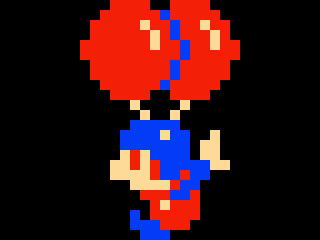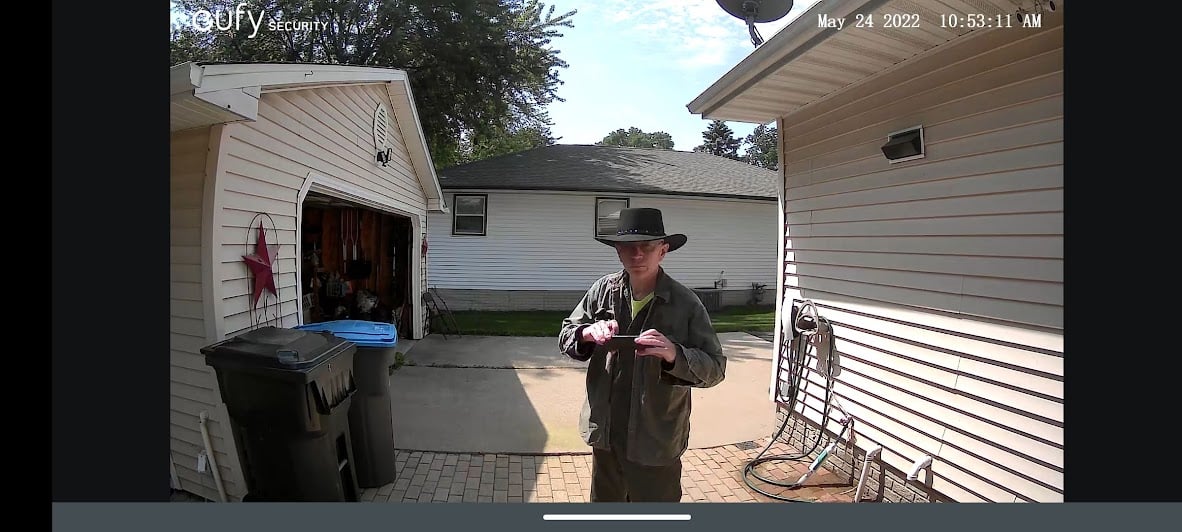How can I prove that everything I see really exists and isn’t just an illusion/ image created by my brain? How can I really know that once I look away from something that it is still there and doesn’t turn black? I thought about the mirror, but maybe the image in the mirror is also just created. The people I hear talking behind me could also be gone but I only hear the audio and once I turn around they appear visually. I thought about using a camera but the content that is saved on the camera could also be fake.
Can someone tell me how to prove that others really exist?
How can I really know that people are responding to this question and not only AI? I have absolutely no proof that this forum could be real. Look at ChatGPT.
I have so many questions.
You can’t prove anything other than yourself being a thinking being.
I think therefore I am.
The best we can do is to use the scientific method to find the expected outcomes of repeatable tests.
You, me and every western philosopher for the last few hundred years all want an answer to this but as far as I know, the short answer is no - you can’t empirically prove anything exists outside of your own thoughts.
However, unless you particularly enjoy trying to answer that question, it’s simply more practical to accept as a fact, that your senses are telling the truth when they tell you something is real.
It’s an axiom, but axioms are helpful for allowing us to get on with living when we would otherwise just get stuck in a pointless loop of asking unanswerable questions.
That said, if you do enjoy the challenge of trying to answer these sorts of questions, you could probably start with Rene Descartes’ - Discourse on the Method. In that, Descartes kicks this whole topic off by asking “what happens if I systematically deconstruct everything I know to be real?” and eventually comes to the conclusion that yes, everything outside of our minds can be doubted but the one, irrefutable fact that holds up under any amount of scepticism, is that “if I can think, I exist”.
This is a pretty digestible article about the importance of the discovery of “cogito, ergo sum”/“I think, therefore I am”.
Your brain is incapable of inventing something as nuanced and complex as the world. You are likely incapable of understanding the most basic principles that define existence, such as biochemistry, cosmology, and geology. And yet, these remain consistent?
Furthermore, it is unlikely that you are a professional musician, cinematographer, or writer, so where does art come from? Your own mind? Don’t be so egotistical.
I find that the delusion of the holographic world is rooted in narcissism and a failure to appreciate The complexity of the universe.
I find the comments here generally miss the point. They seem to entertain this delusional line of thought. You simply are incapable of making this all up.
Are you real or phantasy
You can’t, that’s an age old question. You can only logically prove your own existence, which is the point of Descartes “I think therefore I am”, which is about 400 years old. Since then it is not philosophically possible to get any further on the proof of the existence of anything outside yourself. You could so to speak be a brain in a tank.
This way of thinking is called Solipsism. https://en.wikipedia.org/wiki/Solipsism
Solipsism is not a falsifiable hypothesis as described by Karl Popper: there does not seem to be an imaginable disproof
But solipsism doesn’t make much sense, and debating anything with that presumption immediately becomes meaningless.
What we can say is that if it’s all an illusion, it would take a mechanism with great complexity comparable to the real world to create that illusion. And Occam’s razor dictates that since the illusion idea doesn’t explain or solve anything, but rather raises new questions that are impossible to answer, solipsism merely adds unnecessary complexity.If all is an illusion, it doesn’t really make any difference, it’s just that reality comes about in a different way, and is subjective rather than objective. If it were true, you would not be able to use that information for anything, because you would still have to abide by the rules of the illusion, in the exact same way we have to abide by the rules of what we perceive as reality.
So in short, continuing along that line of thinking is only a waste of time.
So in short, continuing along that line of thinking is only a waste of time.
You had me at not a falsifiable hypothesis
You can’t, because to a certain degree that is exactly what existence is. Light, sound, touch etc. are all experiences the brain creates, and we assume those come from interacting with our physical surroundings. That’s a fairly decent assumption, but if it’s wrong, we’d have no way of knowing.
In addition to traditional answers (Plato, Solipsism, Descartes, …) this question is also the next-to-last step of coming of age: the realization that other people have minds, feelings, reasons, memories, and existences as complex, varied, and real as your own.
Though, rather excitingly, this does not reduce the questions.
Most scientific claims are based on probabilities, not certainty.
E.g…
- We’re 95% sure this psychological phenomenon happens in this scenario, and not randomly.
- We’re 99% sure that this drug works, and it’s not due to random chance.
Proof is about probabilities.
How likely is it that the mirror turns black vs. continues to be a mirror? How likely is it that a person continues to exist when you can’t hear them?
Especially considering that you continue to exist when someone else can’t hear you.
You don’t need to be 100% certain. Just go for Occam’s razor.
You can’t, because you’re a figment of my imagination.
Here is an article that explains what you are thinking about.
In short, you can’t.
A bit longer, while in quantum dimentions it is meanwhile obvious that superposition exists. As shown by many experiments. In the marco world it seems that there is a threshold of factors still to be determined what makes reality happen even if nobody experience it on a conscious level.
You could als checkout some Kurzgesagt videos.
I sometimes wonder if I existed before I was born. not consciously as me but probably just the physical elements combining in a billion different ways until boom. consciousness. i was in a coma for a couple months and after returning to consciousness the progression of time without me was very apparent. I have no doubt the physical world I perceive exists when I’m not looking. vast quantities of time and random coincidences where stable conditions made me possible. 12 up, 9 down. this crosspost continues to exist
All “Plato’s cave”/Deacartes, references aside, one thing you could do would be to prove that the outside rules work, even when you are not paying attention to them.
Take a large cooler. Put it near the sink. Find a method by which the water can drip into the cooler. Turn on the spigot at a low volume, and leave for a while. Measure this time. But do not measure anything about the water other than that, it’s dripping slowly enough you can afford to leave for a couple of hours and it not fill up.
Go do stuff and have fun. Take your mind off of your experiment.
Come back, put a different vessel under the spigot, leaving everything else, the same, so that you can measure how long it takes to fill up a certain amount with the water. Turn off the water, determine how much water made it into the bucket, then, using your reference vessel, determine how much water the spigot was putting out with your settings, in that period of time. Now do the math and determine, using your two vessels, how long you were gone for. Compare that to how long you were actually gone. There is enough randomness in this system, depending on how omniscient you are, so that it would be infeasible for your brain to keep track of it.
depending on how omniscient you are, so that it would be infeasible for your brain to keep track of it.
I like that you’re aware of your own assumptions. So yeah, how can you be sure that it would infeasible to one’s brain to keep track of things? That’s a very “real world human”-centric way to put things. A 100% omniscient entity would have no problem with this.
You could do various things to make it harder (drop some odd-shaped things in the cooler), but omniscience pretty much has to be a hard limit - and so we’re back to Plato’s cave (or brain in-a-box) otherwise. If you’re omniscient, though, you would know what people are doing when you’re not focused on them.
This led to an interesting question. Can a being be omnipotent without being omniscient? In other words, maybe I do create reality as I go (hence omnipotent) but I don’t know how I do it nor what things are doing when I’m not looking at them (hence not omniscient)
I don’t see why not - I can create lots of things I know nothing about, not to mention emergent behavior.
It’s called a camera. You can film a place you aren’t and come back to watch it.
I don’t think this is an appropriate community to post a self-post philosophical question… This community is specifically for posting science articles.
My genuine advice to you is to take an entry level philosophy course at a local community college.
If that’s not affordable/feasible, buy/pirate entry level philosophy textbooks. Or at least look up Descartes and epistemic self-doubt.




